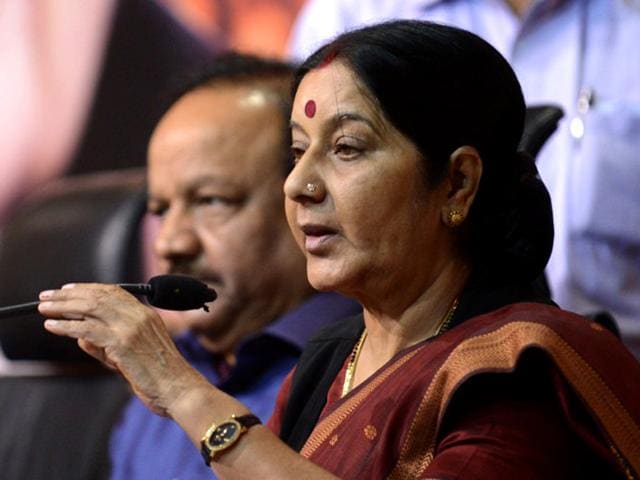Sushma Swaraj’s Bangladesh visit must set the stage for ties
The visit by external affairs minister Sushma Swaraj to Bangladesh which began on Tuesday will be an important gambit for India-Bangladesh relations. The strong mandate received by the BJP in the polls gives it a rare opportunity to resolve long-outstanding bilateral issues.
The visit by external affairs minister Sushma Swaraj to Bangladesh which began on Tuesday will be an important gambit for India-Bangladesh relations. The strong mandate received by the BJP in the polls gives it a rare opportunity to resolve long-outstanding bilateral issues. Unfortunately, on the Indian electoral circuit, Bangladesh did not have much significance. In the BJP’s 50-page election manifesto, Bangladesh was mentioned only once, and that too to say that if elected, the BJP will “complete all pending fencing work along the India-Bangladesh border, stepping up border security”. The Congress manifesto had outlined specific policy stances with regard to all neighbours except Bangladesh.

Bangladesh and India have a shared border. Border killing by the Indian forces continues and demarcation and enclave issues have not been settled yet. According to the 2010 Human Rights Watch report, around 1,000 Bangladeshis were killed in a decade by the Indian border guards. The Indian government in a court submission in 2012 maintained that it had deported more than 45,066 Bangladeshi ‘illegal migrants’ during the period 1991-2012. On the other hand, Silicon India, an Indian magazine, reported in May 2013 that about 500,000 Indians from West Bengal, Meghalaya, Assam, Tripura, and Mizoram illegally work in Bangladesh, remitting a considerable amount to India. The border is porous both ways and economic migration is not something only poor Bangladeshis do. White-collar Indians work in Bangladesh and the money they remit would also not be small amounts. It would be useful to collaboratively address the root causes of illegal migration since there is hardly any reliable data on such immigration.
Water is a contentious issue and the BJP manifesto vows to implement the “inter-linking of rivers based on feasibility”. The implications could be devastating for Bangladesh as it would dry up the Padma — one of the three main rivers of Bangladesh. Upper riparian India’s withdrawal of the Teesta waters is having a dire impact on the environment while driving up the costs more than 10 times for Bangladeshi farmers. The Congress lacked the political boldness to sign the Teesta treaty, but the BJP has the mandate to take the necessary steps, unencumbered by the need to appease mercurial political allies.
India-Bangladesh relations in the past five years give a lopsided picture. While Bangladesh has helped to eliminate insurgency in the North-East, India has not always acted reciprocally. Even with duty removal for all Bangladeshi exports, except 25 goods, India enjoyed a trade surplus of $4.5 billion in 2012-13. The previous Indian government was widely perceived as meddling in the recent elections in Bangladesh. A non-partisan India friendly to all Bangladeshis and not any particular party or ideology is important for sustainable ties.
Swaraj is well poised to have a perspective characterised by mutual benefits as opposed to narrowly defined self-interest. When former PM Manmohan Singh’s visit to Dhaka in August 2011 brought mixed results, Swaraj, then Opposition leader, showed her vision of India-Bangladesh relations by saying that border killings should be brought down to zero for good neighbourly relations. Hence, it is fair to expect that the minister’s visit would result in setting a tone that is positive and taking an approach that is long-term and result-oriented. In the regional context, it is time India took up the Saarc agenda and linked it with its overall ‘Look East’ policy. India might situate Saarc integration together with the evolving BCIM and India-Asean ties. Be it bilateral or regional, South Asia needs to the rise to the occasion as does its biggest player, India.
Syed Munir Khasru is chairman, The Institute for Policy, Advocacy and Governance, Bangladesh. He can be contacted at munir.khasru@ipag.com.bd
The views expressed by the author are personal.



